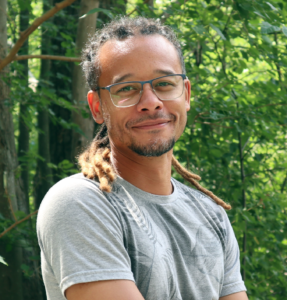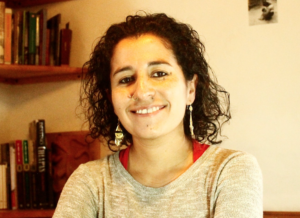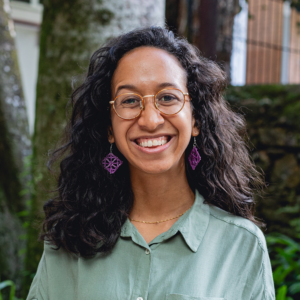Empowering Voices in Ecology: Financial Support for Panelists at ESA 2024 Session on Decolonizing and Diversifying Ecology
This year, Bruno Soares is organizing a pivotal Inspire session titled “Decolonizing and Diversifying Ecology” at the ESA 2024 event. This session, scheduled for Thursday, August 8, from 8:00 AM to 9:30 AM PDT at Grand Ballroom A, will focus on the struggles of underrepresented groups in science and actions to foster a more inclusive ecological research community. To support this initiative, the Inclusive Ecology Section, a group dedicated to promoting inclusivity, provided financial support for registering some of the panelists. This effort ensures that diverse voices are heard and celebrated. Let’s meet the distinguished panelists who will be sharing their insights at this session.
About the Session
Inspire Sessions (INS)
Inspire sessions are fast paced and engaging sessions that consist of 6-10 invited talks, each 5 minutes long and accompanied by slides that automatically advance. These sessions are meant to stimulate dialogue on the subjects presented. Each session ends with a discussion period once talks are completed, typically at least 30 minutes. Inspire sessions can be proposed for traditional in person sessions as well as hybrid sessions.
From the session organizers
Session Description:
In this session, we will discuss the struggles of underrepresented groups in science and actions that can advance a more inclusive way of doing ecological research. Specifically, we will focus on how the legacy of colonialism and the lack of diversity in science affects ecologists and their research. We will also reveal and celebrate how people and institutions are working towards a contracolonial and diverse way of doing science. Our Inspire session will be guided by two main questions: 1) What are the challenges of decolonizing/diversifying knowledge production given our historical context? 2) How can we advance a more equitable environment in ecological research? Each talk will present a specific problem and/or action towards decolonizing/diversifying science. Specific topics include support and mentorship to minoritized groups, the importance of affirmative actions to increase diversity in the Higher education, the connections between ecological research and Global South communities, and how to plan equitable spaces.
Meet the Panelists being supported
Piatã Marques

Piatã Marques is an ecologist who finds natural wonders behind the concrete of our cities. His research focuses on the interactions between people, ecology, and evolution in aquatic ecosystems. Using a trait-based approach, Piatã studies how organisms, particularly fish and invertebrates, persist, adapt, and interact with urban environments. He is currently a researcher at the University of Toronto, Canada, and has a PhD from the University of Victoria, Canada, and a Master’s degree from the Universidade do Estado do Rio de Janeiro, Brazil. Piatã is also dedicated to supporting BIPOC students in STEM through the Odu initiative. More about his research can be found here.
Alejandra Guzmán Luna

Alejandra Guzmán Luna is a biologist with a Master’s degree in Ecological Restoration from the National Autonomous University of Mexico and a PhD in Agroecology from the Colegio de la Frontera Sur, Mexico. Her work, in collaboration with peasant communities, focuses on food sovereignty and agroecological transitions. Alejandra employs Participatory Action Research principles to study agrobiodiversity and the intersection between agroecology and nature preservation. She is currently a researcher affiliated with the University of Veracruz and a global collaborator for the Institute for Agroecology at the University of Vermont.
Coral del Mar Rodríguez

Coral del Mar Rodríguez is a PhD student at Cornell University’s Department of Ecology and Evolutionary Biology. Her research investigates plant hydraulics under disturbance using remote sensing, with a focus on the Luquillo Throughfall Experiment in Puerto Rico’s rainforest. Coral explores how GPS signals can inform models of plant demography by understanding aboveground canopy water content. Outside her research, she enjoys hiking, embroidering, reading, and spending time in coffee shops.
Myrna Elis Ferreira Santos

Myrna Elis Ferreira Santos is a biologist with a Master’s degree in Biodiversity and Conservation from Universidade Federal de Alagoas. Her master’s research examined the relationship between functional and phylogenetic distance in fish species. Myrna’s primary research interests include community ecology and ecological interactions, areas in which she continues to contribute valuable insights.
YOU MADE IT POSSIBLE
We would like to extend our heartfelt thanks to everyone who supports the Inclusive Ecology Section. Your memberships with the ESA and contributions through purchases at our conference table are crucial in providing the funds that make initiatives like this possible. Your support enables us to continue promoting diversity, equity, and inclusion within the ecological community. Thank you for being an integral part of this mission and for helping to empower underrepresented voices in ecology.
If you want to find out more about this session follow this link